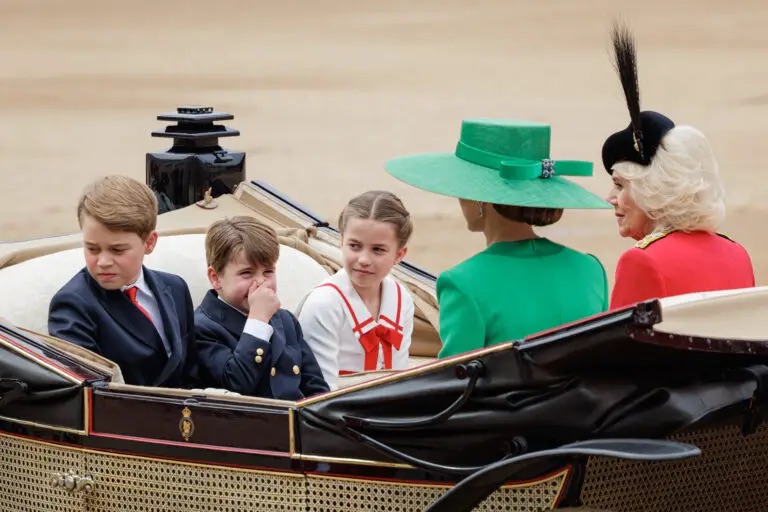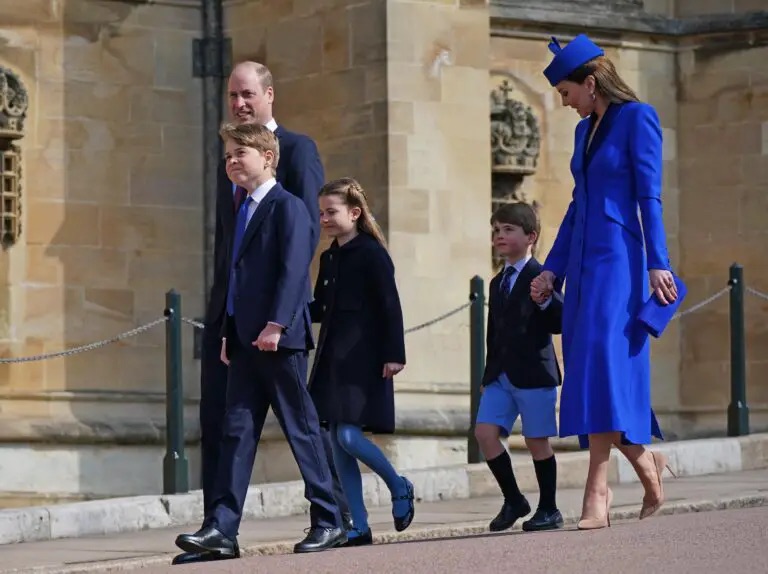Prince Louis, the youngest child of Prince William and Princess Kate, has charmed the world with his playful, silly expressions during royal events.
Photos of him making faces, trying to hold back laughter, or reacting humorously in public have become beloved by the public. However, a royal expert has recently raised concerns about how this attention could affect Louis’s future.
Louis’s parents, Prince William and Princess Kate, are known for treating him gently because he’s the youngest in the family. Sources reveal they’re understanding of his energy and antics, knowing how tiring these formal events can be for a young child.
They try to teach him to behave, but they also let him have fun, wanting to preserve his lively spirit. They hope that as he grows older, he’ll naturally become more reserved in public.

The Prince and Princess of Wales aim to give their children as normal a childhood as possible, though they are in the royal spotlight. Louis attends Lambrook School, which emphasizes responsibility and empathy.
For example, students who want to go on school trips must raise the funds themselves, rather than relying on their parents’ wealth. This approach, similar to the late Princess Diana’s parenting style, is meant to instill in Louis, George, and Charlotte a sense of gratitude for their privileged lives.
Royal experts believe that as Prince George, Princess Charlotte, and Prince Louis grow older, they’ll have unique roles within the royal family. George, as the future king, has a clear path, while Charlotte may balance public duties with a career.
For Louis, however, his future role is less certain. Experts predict he might become a “private citizen” who occasionally fulfills royal duties, similar to his father’s cousins, such as Princess Beatrice and Princess Eugenie.

Recently, an image of Louis was printed on a large flag seen at Glastonbury, one of the world’s largest music festivals. Royal commentator Daniela Elser believes that making Louis into a public “character” could have unintended consequences.
She warns that the media’s focus on Louis as a “funny royal child” could harm him later, turning him into a “caricature” or “perpetual meme.” She draws a comparison to Prince Harry, who struggled with public perception and later expressed his pain in media interviews.
Elser suggests that if the public continues to view Louis in this light, he may grow up feeling misunderstood or hurt. She believes it’s essential to remember that Louis is a real child, not just a figure in royal photos. Elser argues that to protect his well-being, William and Kate may want to reconsider sharing photos of him online until he’s old enough to decide for himself.


